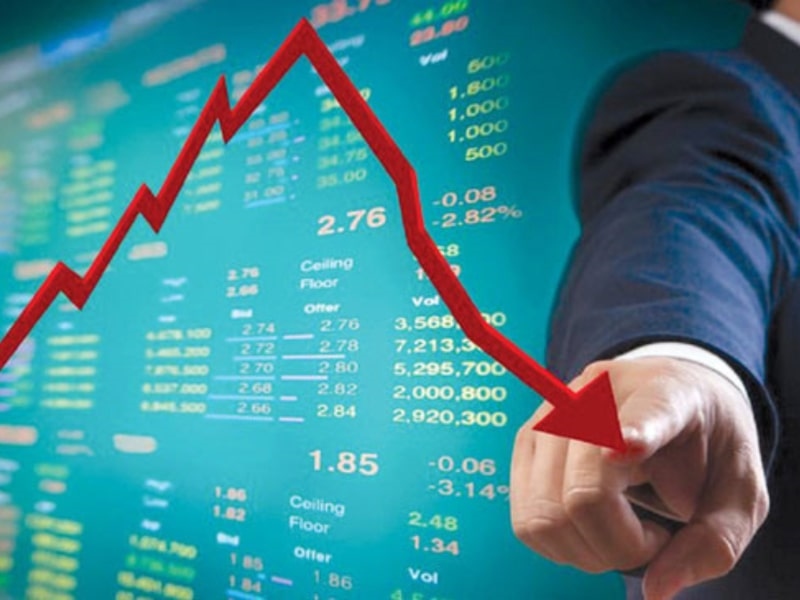Currently How many types of stocks are there? on the stock market, Types of stocks in Vietnam which we should invest in, and role of stock market, let's find out through the article below.
What are stocks?
Stocks (also known as corporate stocks) are a type of security that represents partial ownership of a company. When a company issues stock, it divides its ownership into smaller parts called shares and sells them to investors on the stock market.
>>> See more articles: What is foreign block? Foreign block in Vietnam stock market
Types of stocks in Vietnam
New stock players in addition to needing to understand clearly How many types of stocks are there? In the market, it is also important to understand that stocks are very diverse and are classified according to many different criteria. Below is information about Types of stocks in Vietnam that you should know when starting to play stocks:
By industry
- Bank stocks: Stocks of companies operating in the banking and financial sector.
- Technology Stocks: Stocks of companies involved in information technology and technology development.
- Healthcare Stocks: Stocks of companies operating in the medical, pharmaceutical and healthcare industries.
- Energy Stocks: Stocks of companies that operate in the energy sector, including oil and gas, electricity, and renewable energy.
By financial nature
- Growth Stocks: Stocks of companies with high growth potential.
- Value Stocks: Stocks that are priced below the company's intrinsic value.
>>> See more articles: What are Penny Stocks? Top 10 Potential Penny Stocks 2024
By dividend payment method
- Dividend Stock: Stock on which the company regularly pays dividends to shareholders.
- Ex-dividend stock: Stock that the company does not pay dividends but rather reinvests in the company.

Ways to classify stocks on the stock market
Types of stocks on the stock market classified in the following forms:
Classification by form of ownership
- Common Stock: The most common type of stock, representing shareholder ownership in a company. Common stock owners have the right to participate in the management of the company through voting at shareholder meetings.
- Preferred stock: Has preferential rights over common stock, such as the right to receive fixed dividends before common stock or the right to receive assets when the company is dissolved. However, preferred stock usually does not have voting rights.
Classification by industry
- Bank stocks: Stocks of commercial banks, for example: VCB, BIDV, CTG.
- Real estate stocks: Stocks of real estate companies, for example: VHM, VIC.
- Industrial stocks: Stocks of manufacturing and processing companies, for example: HPG, GAS.
- Consumer stocks: Stocks of companies that produce consumer goods, e.g. MSN, SAB.
- Technology stocks: Stocks of technology companies, for example: FPT, VNG.
Classification by market capitalization
- Large-cap stocks: Stocks of companies with large market capitalization, usually companies that have been listed for a long time and have a strong position in the market.
- Mid-cap stocks: Midcap stocks of mid-sized companies, which typically have higher growth potential than large-cap stocks.
- Small-cap stocks: Stocks of small-sized companies, usually startups or companies in the growth stage.
Classification by index
- Stocks in VN30 index: Includes 30 stocks with the largest capitalization and highest liquidity on the market.
- Stocks in VNMidcap index: Includes stocks with mid-capitalization.
- Stocks in VNsmallcap index: Includes small-cap stocks.
>>> See more articles: What are Midcap stocks? Potential investment opportunities in 2024
Other types of stocks
- Blue-chip stocks: These are stocks of large, reputable companies with a history of paying stable dividends.
- Growth stocks: These are stocks of companies with high potential for future profit growth.
- Value stocks: Are stocks that have an intrinsic value higher than their market price.
Types of stocks to invest in
When learning about Types of stocks to invest in It is important to do thorough research and consider fundamental and technical factors before making a decision. Here are the characteristics and benefits of the types of stocks that investors often consider when investing:
>>> See more articles: Top 5 safe and reputable online gold buying and selling apps in 2024
Blue Chip Stocks
- Characteristics: Stocks of large, stable, reputable companies with a long history of growth.
- Benefits: Usually safer, stable supply and demand, often pay dividends.
Growth Stocks
- Characteristics: Stocks of companies with high growth potential.
- Benefits: Potential for large profits in the future, often aimed at investors who want to increase capital.
Value Stocks
- Characteristics: Stocks are priced below the company's true value.
- Benefits: Potential for price appreciation as the market better understands and appreciates the company's true value.
Dividend Stocks
- Characteristics: Stocks of companies often pay regular and stable dividends.
- Benefits: Suitable for investors who want to receive regular annual dividends.
Undervalued Stocks
- Characteristics: Stocks are priced below the company's true value.
- Benefits: Has strong upside potential as the market corrects their value.
When investing in stocks, remember that each stock comes with its own risks, and it is important to assess and manage those risks. Also, consulting with a professional advisor can help you make better investment decisions.

Factors affecting stock prices
Stock prices The stock market can be affected by many different factors. Here are some important factors that affect stock prices such as:
Company business results
- Earnings: This is the most important factor that affects stock prices. When a company has high and stable earnings, it shows that the company is operating efficiently and is able to create value for shareholders. Therefore, investors are often willing to pay a higher price for these stocks.
- Revenue: Growing revenue shows that the company is expanding its business and gaining market share. However, increasing revenue does not necessarily mean increasing profits if expenses are rising too quickly.
- Growth: The growth rate of revenue, profits and other financial indicators is an important factor in assessing a company's growth potential. Companies with high growth rates are often favored by investors.
Macroeconomic situation
- Interest Rates: Interest rates affect a company's cost of capital and the opportunity cost of investors. When interest rates rise, a company's cost of capital increases, reducing profits and potentially causing stock prices to fall, and vice versa. This creates conditions for businesses to invest and expand production, thereby promoting stock prices to rise.
- Exchange Rates: For companies with export activities, exchange rates have a big impact on profits. When the domestic currency strengthens against foreign currencies, the profits of exporting companies when converted into domestic currency will decrease and vice versa.
- Government policies: Government policies on tax, finance, currency, investment, etc. can directly impact business operations and the stock market. For example, reducing corporate income tax will help businesses increase profits and attract investment.
Supply and demand in the market
- Supply: The number of shares offered for trading on the market. When supply increases, prices tend to fall as more shares are sold.
- Demand: The number of shares that investors want to buy. When demand increases, prices tend to rise because many people want to buy but the number of shares is limited.
Investor psychology
- Optimism: When investors are optimistic about the prospects of the market and companies, they will be willing to pay higher prices to buy stocks.
- Pessimism: Conversely, when investors are pessimistic, they will sell stocks, putting downward pressure on prices.
- Herd mentality: Herd mentality can lead to sharp fluctuations in the stock market. When many investors buy or sell the same stock, the stock price can rise or fall very quickly.

Core issue
Although there are countless types of stocks on the market, they all originate from the actual business operations of the enterprise. Classification is just a tool to support investors. More importantly, investors need to focus on in-depth analysis of the financial situation, business operations and future prospects of the enterprise to make accurate investment decisions.
The stock market is a volatile and risky environment. Understanding the types of stocks and the factors that affect stock prices will help you make better investment decisions. However, there is no formula that guarantees success in investing. Through the information summarized above, HVA Hope that investors always update information and learn and study to become a smart investor.











